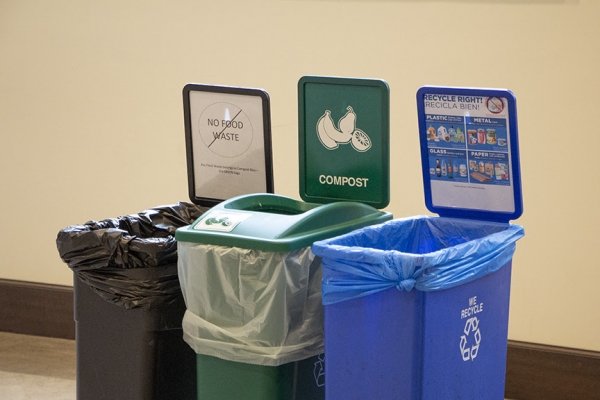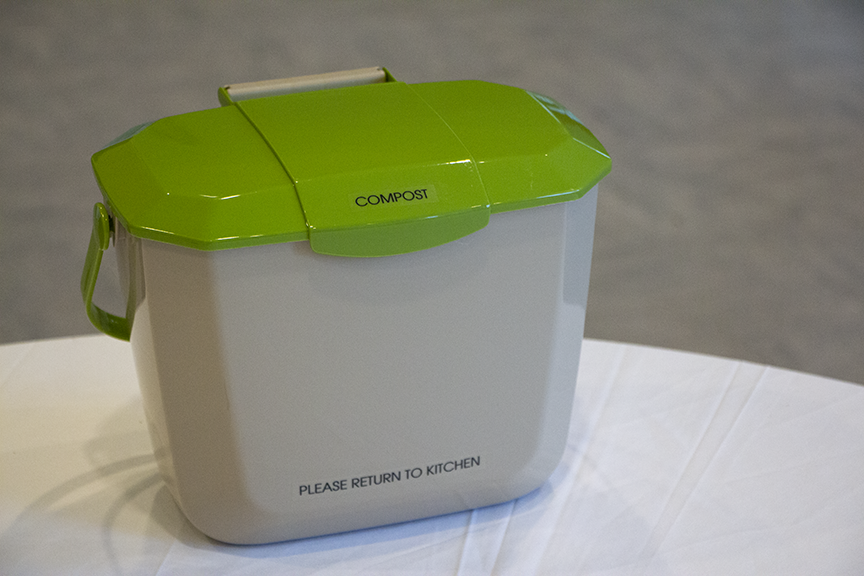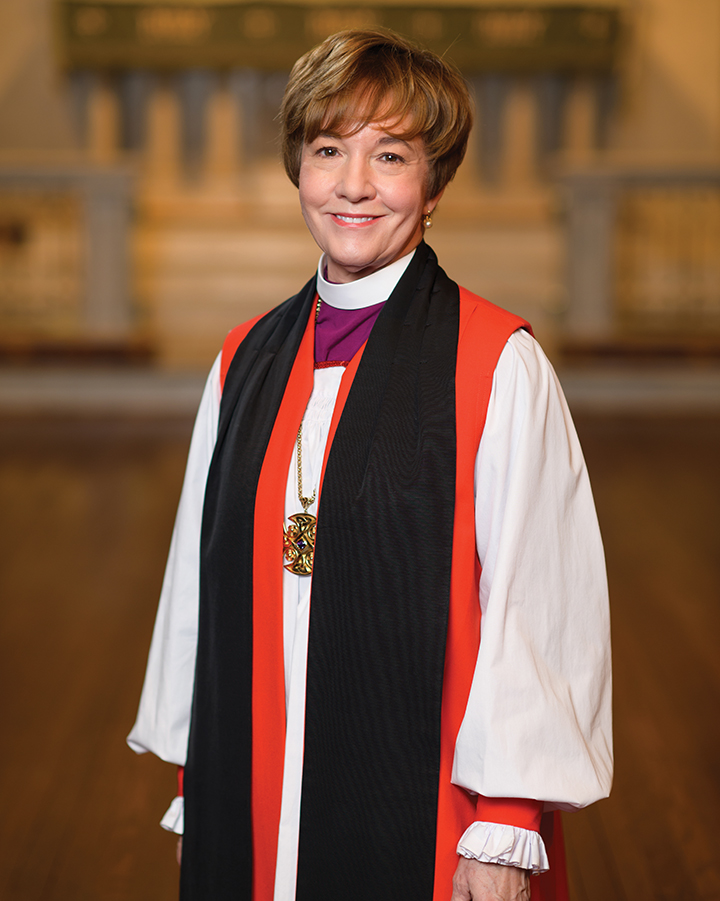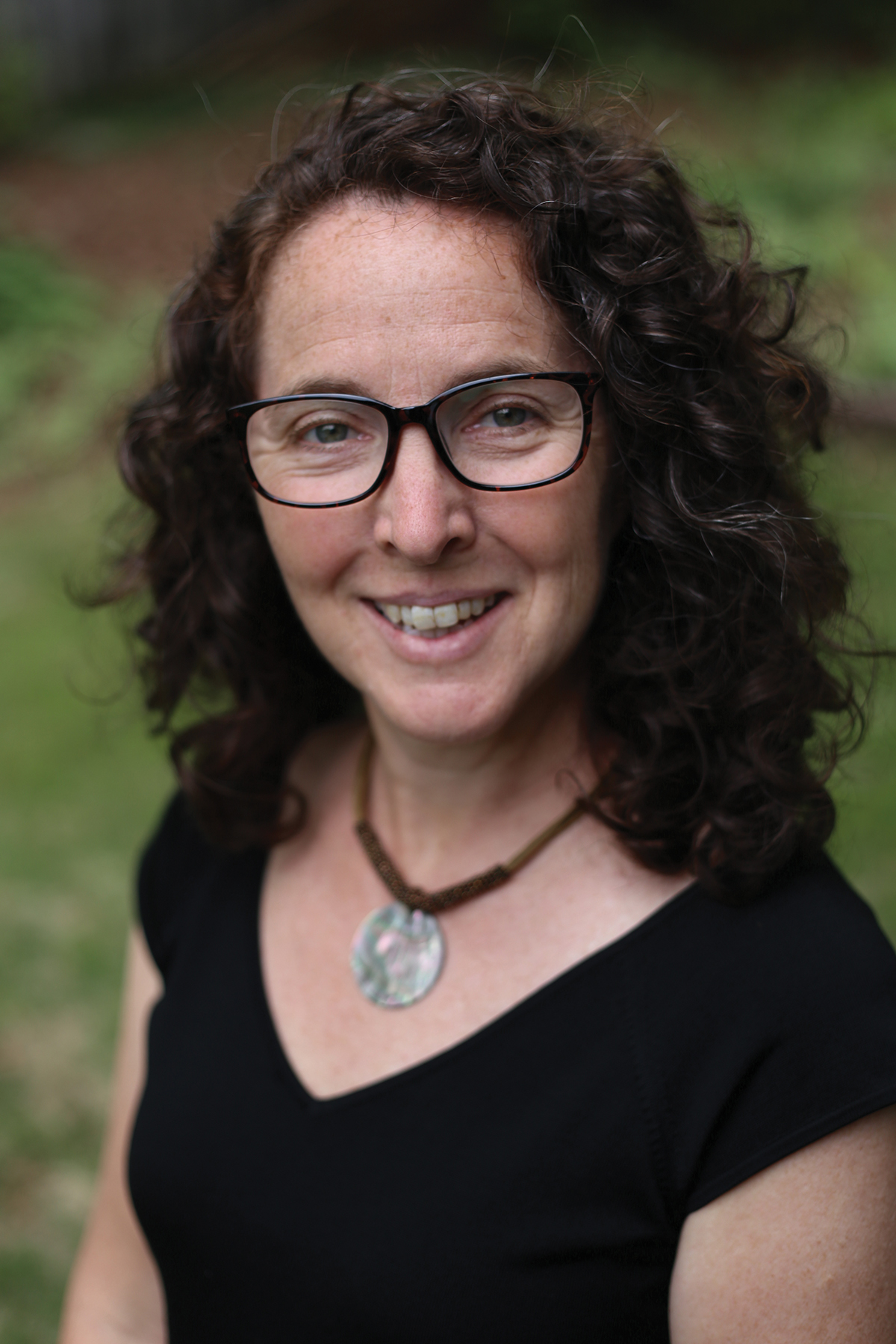Making A New Creation Through Composting

*Adapted from Chapel of the Cross newsletter
“If anyone is in Christ, there is a new creation: everything old has passed away; see, everything has become new!” 2 Corinthians 5:17
Composting can seem like a big step to take in an effort to care for creation, but as we say so often, one small step at a time can lead to big impacts.
Over the last few years, The Chapel of the Cross (COTC), Chapel Hill, has taken those steps to make what was old into that which is new, both as individuals and as a church. Individually, many of COTC’s parishioners have gathered all of their compostable items at home and brought them to the church to add to on-site compost bins for collection. Institutionally, all compostable items from events and day-to-day parish life are collected and composted as well. Every effort is made to ensure the predominant use of reusable or compostable products at church events. Plates, cups, napkins, paper towels and many other products at COTC are fully compostable and are added to the compost bins for collection each week.
The results have been incredible. In just over two years, COTC’s efforts have averted 45,159 pounds of waste from going into landfills and created 4,516 pounds of rich, sustainable compost. When food waste is thrown into a landfill, it decomposes in the absence of oxygen and produces methane, which is 25 times more powerful a greenhouse gas than carbon dioxide. Through COTC’s composting efforts to date, the church has prevented the release of 4,696 pounds of methane, which is equivalent to 117,412 pounds of CO2. To put this in more relatable terms, the amount of greenhouse gas emission that COTC has avoided by composting is equal to that which would be produced by driving a car 131,825 miles. It would take 298 people leaving their cars parked in their driveways for two weeks to equal the amount of greenhouse gas emission COTC has avoided by composting. Additionally, the compost created puts carbon back into the soil and enriches it for future plant growth.

While there is much to be celebrated in the results of COTC’s composting efforts, they still strive to accomplish even more. The church’s compost bins are open to all parishioners, inviting them to bring their compostables to COTC and placing them in one of the many clearly labelled compost cans are positioned in front of the playground. The offer is open to local neighbors as well, though neighbors are requested to contact the church first to be introduced to the process and receive a list of what can and cannot be composted. The church even offers countertop compost bins for purchase as well as compostable liner bags, as one item that absolutely cannot be placed in compost bins is plastic bags (compost will not be collected if plastic bags are in the bin).
To learn more about COTC’s composting program or for information on how you might start your own, visit the COTC website or contact COTC Creation Care committee members Anita Howell or Neil Pederson. Composting is a small step everyone can take, and when we all do it, the result is an incredibly big and positive impact on the earth we call home.
 Assistant Bishop
Assistant Bishop
 Mission Strategy Coordinator
Mission Strategy Coordinator
